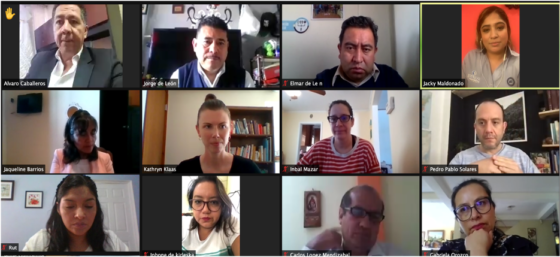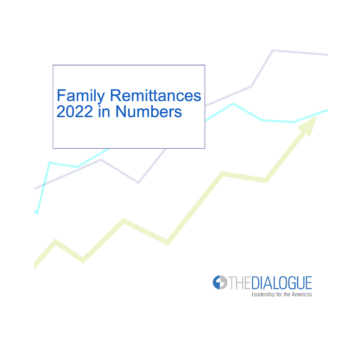
Family Remittances 2022 in Numbers
The Migration, Remittances, and Development Program presented a report addressing the continued increase of annual remittance trends associated to large migration patterns in 2022.
The Migration, Remittances, and Development Program presented a report addressing the continued increase of annual remittance trends associated to large migration patterns in 2022.
Nicaragua is a country where democracy and economic policy have been criminalized because the independence of state institutions is absent. The Ortega-Murillo family has chosen to enact laws that protect the status quo and not the public good. This report makes recommendations that would help ensure economic stability.
On October 25, 2022, Think Tank Haiti (TTH) – a joint collaboration between Université Quisqueya and the Inter-American Dialogue – hosted a webinar titled “Haiti’s Frustration with International Aid.” During the event, prominent Haiti scholar and sociologist, Michèle Oriol, discussed her recent paper “International Aid or Foreign Policy? Lessons Learned since 1990” and her findings.
A Latin America Advisor Q&A featuring experts’ viewpoints on remittance costs in Latin America and the Caribbean.
The report recommends leveraging remittances through financial access, education, and investment in order to strengthen economic developments and reduce the need for Central Americans to migrate in the first place.
In this report, The Inter-American Dialogue is pleased to present the activities and results of the Thriving in San Marcos initiative, which offered an innovative approach to local migration management.
A Financial Services Advisor Q&A featuring viewpoints on the drivers of high levels of remittances in Mexico.
A Financial Services Advisor Q&A featuring experts’ viewpoints on the effects of cryptoassets on remittances in Latin America and the Caribbean
On March 30, 2022, the Inter-American Dialogue hosted a public roundtable titled “Interpreting Increased Remittances to Latin America and the Caribbean,” centered on the recent increases in the flow of remittances toward Latin America.
This report provides a review of the trends that led to growth in family remittances in Latin America and the Caribbean in 2021. It points to a combination of factors that include increased migration, migrants prolonging their stay in the United States, use of digital transfers among others. It also introduces projections based on future migration and remittance sender changes in 2022.
On September 21st, 2021, The Inter-American Dialogue hosted a panel titled “The Changing Face of Migration in the Americas” to discuss the growing scale of migration in Latin America and the Caribbean and the changing composition of these flows over the past two years.
This report from the Migration, Remittances & Development Program presents the findings of a survey carried out with more than 1,000 US immigrants from eight Latin American and Caribbean nationalities during the Covid-19 pandemic. The study identifies critical aspects that shaped migrants’ experiences in 2020 and early 2021, and, more importantly, the determinants of continuing to send money back home in times of crisis.
A Latin America Advisor Q&A on El Salvador’s designation of Bitcoin as legal tender its implications for the economy and businesses.
El 15 de abril del 2021 se llevó a cabo “Diálogo de alto nivel: el rol clave de la transparencia de datos en las remesas” con el objetivo de ampliar las discusiones sobre la transparencia en los datos sobre remesas que ingresan a Guatemala y conocer la perspectiva de actores claves sobre la posibilidad de crear un observatorio nacional sobre remesas.
El 28 de enero del 2021, El Diálogo Interamericano, en colaboración con la Red Nacional de Grupos Gestores de Guatemala-San Marcos, organizó un conversatorio privado, “La migración como elemento del desarrollo integral: Alianzas y prácticas para su inclusión estratégica” con el apoyo de Cities Alliance. El conversatorio se concentró en el caso guatemalteco con el objetivo de socializar y discutir perspectivas planteadas por actores que trabajan con los lugares de origen, destino y retorno.
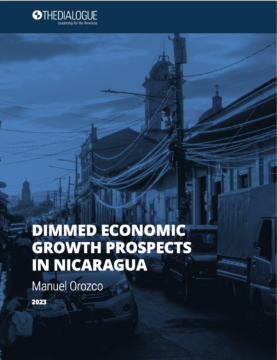
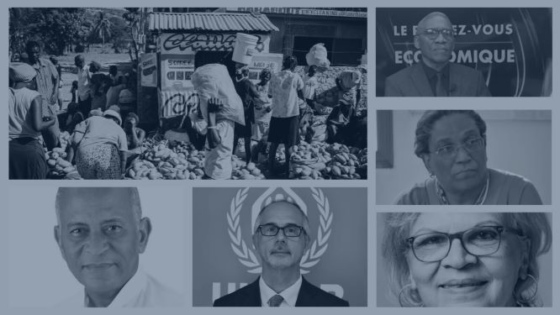 Video
Video

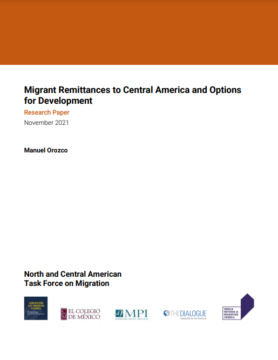
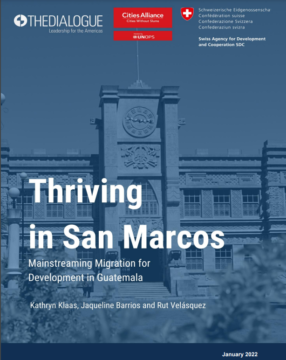


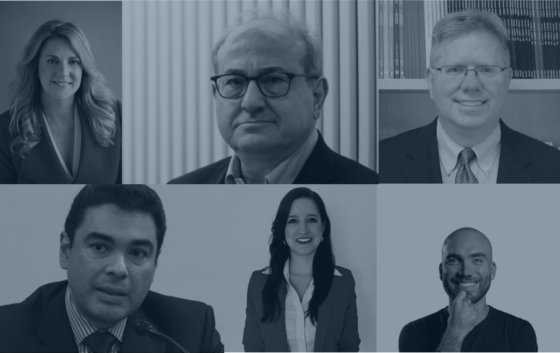 Video
Video
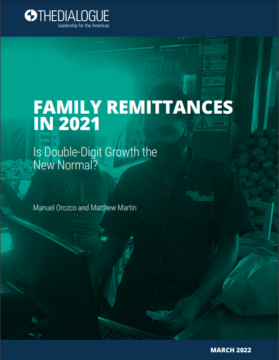
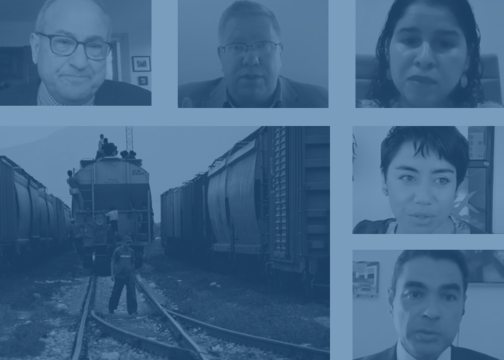 Video
Video
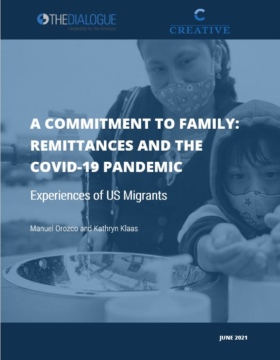
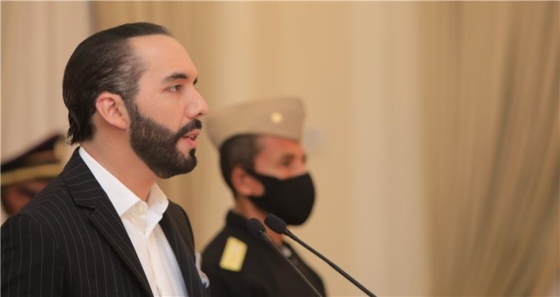
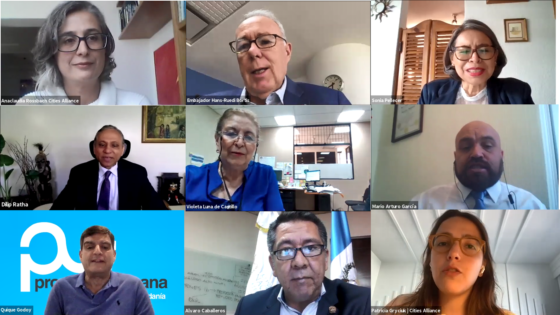 Video
Video
